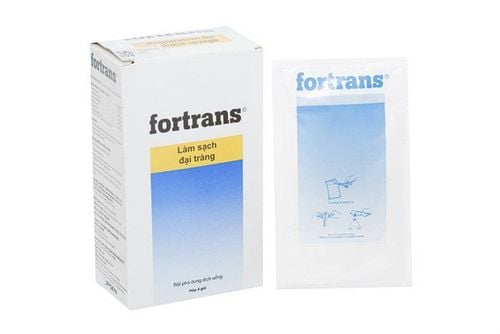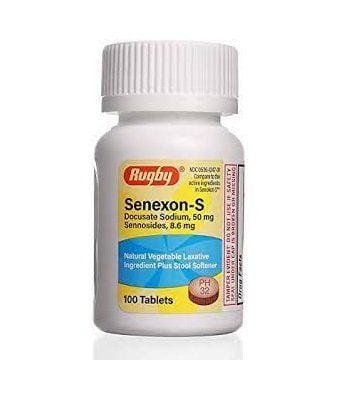Authored by Dr Department of Internal Medicine & Outpatient Clinic, Vinmec Central Park International Hospital
Senna tea is a popular herbal medicine often marketed as a laxative, weight loss aid, and detoxifying agent. However, there is limited scientific evidence to support most of these uses—apart from its effectiveness in treating constipation.
1. What is Senna?
Senna is an herbal medication derived from the leaves, flowers, and fruits of a large group of flowering plants in the legume family. Extracts and teas made from senna have long been used as laxatives and stimulants in traditional herbal medicine.
Originally cultivated in Egypt, senna is now grown worldwide in countries such as India and Somalia. Most commercial products are derived from Cassia acutifolia or Cassia angustifolia, commonly known as Alexandrian and Indian senna, respectively.
Today, senna is commonly sold as a tea or over-the-counter laxative supplement but is also sometimes found in weight loss products and detox beverages.
2. Therapeutic Uses of Senna Tea

The most common use of senna tea is to stimulate bowel movements and relieve constipation.
The active compounds in senna leaves are known as senna glycosides, or sennosides. These compounds are not absorbed in the digestive tract but are broken down by the gut bacteria. The breakdown of sennosides mildly irritates the cells in the colon, stimulating bowel movements and producing a laxative effect.
Senna is a key ingredient in many over-the-counter laxatives, such as Ex-Lax and Nature’s Remedy. For most people, it induces bowel movements within 6–12 hours.
3. Other Potential Uses
Some individuals use senna tea to alleviate discomfort associated with hemorrhoids. However, its effectiveness for this purpose has not been thoroughly studied.
4. Senna Tea Should Not Be Used for Weight Loss

Senna is increasingly found in herbal teas and supplements marketed for metabolism boosting and weight loss. These products are often labeled as "skinny teas" or "teatoxes." However, there is no scientific evidence supporting the use of senna tea for detox, cleansing, or weight loss.
In fact, using senna tea for these purposes can be harmful. Long-term, high dose or frequent use of senna tea is not recommended, as the sennosides may disrupt normal bowel function, leading to laxative dependency. Moreover, a recent study with over 10,000 female participants, found that those who depended on laxatives for weight loss were six times more likely to develop eating disorders.
5. Safety, Precautions, and Side Effects
Senna tea is generally safe for most adults and children over 12 years old, but it does come with certain risks and side effects. Common side effects include stomach cramps, nausea, and diarrhea. However, these reactions are typically mild and tend to self-resolve quickly.
Certain individuals may also be allergic to Senna. If you have previously had an allergic reaction to one or more senna products, you should avoid consuming senna tea. Senna is intended for short-term relief of constipation and should not be used for more than seven consecutive days unless directed by a healthcare provider. Prolonged use can lead to laxative dependency, electrolyte imbalances, and liver damage.
Furthermore, Senna may interact with medications, including:
- Anticoagulants or blood thinners
- Diuretics
- Steroids
- Licorice root
- Antiarrhythmics or medications for irregular heart rhythms.
If you are suffering from heart diseases, inflammatory bowel disease (IBD), or liver diseases; you should consult your healthcare provider before using senna products, as it may worsen these conditions.
Lastly, senna is generally not recommended for pregnant or breastfeeding women.
6. Recommended Dosage
The standard dosage for senna-based supplements is 15–30 mg per day for no longer than a one-week regimen. However, there are no specific recommendations or standardized limitations for the consumption of senna tea.
Moreover, the exact dosage is harder to determine as sennoside concentration can vary depending on the tea’s steeping time. Furthermore, commercial senna tea products, especially the ones that come in a variety of herbal mixes, fail to label the exact nutritional content of senna.
For such products, you should always follow the preparation and consumption guide on the product label and avoid exceeding the recommended amount. Even if the product does not clearly quantify the nutritional content, nonetheless you should avoid use that exceeds the labelling’s instruction.
7. How to Brew Senna Tea at Home
Senna tea has a mild, sweet, and slightly bitter flavor. Unlike many herbal teas, it lacks a distinctive aroma. However, commercial senna teas often include other herbs to enhance their flavors and aromas.
To prepare senna tea from scratch, you should steep 1–2 grams of dried senna leaves in hot water for 10 minutes. You can add natural sweeteners like honey or stevia to improve the taste but limit consumption to no more than two servings per day.
To arrange an appointment, please call HOTLINE or make your reservation directly HERE. You may also download the MyVinmec app to schedule appointments faster and manage your reservations more conveniently.








